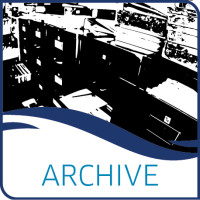The Interim Population Consequences of Disturbance (iPCoD) framework was developed by SMRU Consulting and the University of St Andrews in 2013 to forecast the potential effects on marine mammal populations in UK waters of any disturbance, hearing damage or collisions that might result from the construction or operation of offshore renewable energy devices.
A detailed description of the approach can be found in Harwood et al. (2013) and King et al. (2015). The iPCoD framework was designed to cope with the current situation, in which there is only limited knowledge about the potential effects of these developments on marine mammals. It should be recognised that it is very much an interim solution to the evaluation of these effects, and that there remains an urgent need for additional scientific research to address the knowledge gaps that were identified by Harwood et al. (2014).
Since its initial release (v1.0) in February 2014 on the Marine Scotland website: http://data.marine.gov.scot/dataset/protocol-implementing-interim-popula..., the tool was updated with amendments to the code and helpfiles in October 2014 (v1.1). Since then, the iPCoD tool has been used for a number of offshore wind developments in Germany, Netherlands, France and the UK (and possibly others) and has been used to explore the potential population level effects of collisions of a range of species with marine renewable energy devices in Scotland and Wales. Also during this time, SMRU Consulting and John Harwood have explored developing the tool further to improve the model framework.
Since the release of v1.1 there have been several internal iterations of the code (leading to a version 2). This release marks a significant material increase in the efficiency and capability of the interim PCoD framework (version 3).
References:
Harwood, J., S. King, R. Schick, C. Donovan & C. Booth 2013. A Protocol for Implementing the Interim Population Consequences of Disturbance (PCoD) Approach: Quantifying and Assessing the Effects of UK Offshore Renewable Energy Developments on Marine Mammal Populations. Scottish Marine and Freshwater Science 5(2). <http://www.gov.scot/Resource/0044/00443360.pdf >
Harwood, J. and King, S.L. (2017). The Sensitivity of UK Marine Mammal Populations to Marine Renewables Developments - Revised Version. Report number SMRUC-MSS-2017-005. King, S. L., Schick, R. S., Donovan, C., Booth, C. G., Burgman, M., Thomas, L., et al. (2015). An interim framework for assessing the population consequences of disturbance. Methods in Ecology and Evolution, 6(10), 1150e1158. http://dx.doi.org/10.1111/2041-210X.12411
Data and Resources
| Field | Value |
|---|---|
| Publisher | |
| Modified | 2017-10-04 |
| Release Date | 2017-10-04 |
| Identifier | ea71eda6-f809-4b43-8e52-6133f891efb1 |
| License | UK Open Government Licence (OGL) |
| Public Access Level | Public |


